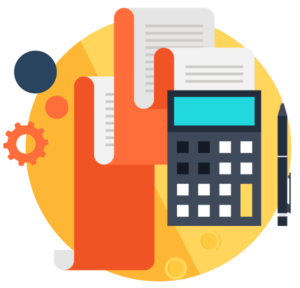Set a Budget You Can Live With
If you're anything like me, you might feel inspired to get everything in your life in order at the start of the new year. For some, this means deep cleaning the house or joining the gym. For others, it's a list of goals or resolutions you swear you'll accomplish in the next 365 days. One thing you should consider mastering and accomplishing in this next year is understanding, creating, using and mastering a budget. Don't be scared! We'll walk through this together. Let's begin.
Understand the Budget
When you create and use a realistic monthly budget, you know what to expect and you also hold yourself accountable. If you budget $5 for coffee per week and find out you're really spending $30, it's a good clue you're not staying true to your budget. Be honest with yourself and the amounts you set. You don't need to set low amounts for your expenses, you need to set realistic amounts. If you know you can spend $75 per week on groceries and not only use the food you purchase, but enjoy what you're eating or cooking, then that's a win. If you know you need to spend $200 per week on groceries to make it work, that's also okay. It isn't about the actual number you set for your expense, it's understanding what goes into the number and knowing you can stick to it.
Create the Budget
 There are lots of ways to create a budget. My favorite way to budget is to use Mint, a free online money management and tracking platform. I love that there is both a website and an app to help me stay on top of my family's spending. There are also countless Excel templates to help you create and understand your budget. Maybe you want to create it from scratch, with a pen and paper. That works well too! Again, the most important part is finding a way that works for you and you know you'll be able to stick to using. Previously, I used the software Quicken to help me keep track of my monthly expenses. It's all about finding the best tool for you.
There are lots of ways to create a budget. My favorite way to budget is to use Mint, a free online money management and tracking platform. I love that there is both a website and an app to help me stay on top of my family's spending. There are also countless Excel templates to help you create and understand your budget. Maybe you want to create it from scratch, with a pen and paper. That works well too! Again, the most important part is finding a way that works for you and you know you'll be able to stick to using. Previously, I used the software Quicken to help me keep track of my monthly expenses. It's all about finding the best tool for you.Now let's budget. Start by estimating how much you spend each month. In addition to your standard bills (phone, rent/mortgage, electricity, insurance, car payments, etc.), estimate other expenses that aren't a bill (gas for your car, groceries, household products, haircuts, eating out, coffee, etc.). Try to write down all the things you purchase on a regular basis, including clothing and shoes. You may not buy much clothing, but during a year you will probably buy a few things. If you plan to take any trips include that expense as well. While a trip isn't a monthly expense, you can estimate the cost and divide it by 12 months so you are saving up for the trip each month.
Use the Budget
Once you have a budget, start tracking your expenses to see if your estimates are accurate. We'll start with the coffee example. If you budget $10 per week (roughly $40 per month) on coffee and you realize you're consistently only spending around $30 a month, that means you're saving $10! That is progress and it's a good thing. Now, say it's been a few months and you budgeted $100 per month on groceries, but you're spending closer to $200 or more. That isn't a failure. It's an opportunity to figure out what's going on. Are you labeling everything from the store as a grocery item when some of it might fall under a household expense? Are you making a lot of impulse buys while grocery shopping? Go back through what you've spent the money on and examine where your money truly is going and make a choice on whether you need to adjust your spending habits or your budget.
Master the Budget
Mastering your budget won't happen in the first few months or even the first year. It requires sticking to it, being honest with yourself, and remembering why you wanted a budget in the first place. You want to be in control of your money, not the other way around! Having a budget doesn't mean you can't go out with friends for dinner, or buy a new pair of shoes. Mastering the budget means you know you're going to want to go out with friends and enjoy dinner, and you've planned how much you'll spend ($40 perhaps) that evening. It also means you know the $40 is coming from somewhere else in that budget: maybe you don't get a fancy coffee each afternoon for the rest of the month, or you skip the Redbox on a couple of weekends (hey instead of Redbox, check out free movies or TV shows through Hoopla, one of our digital download services and save yourself some dough)!
The ultimate goal of a budget is to save money and be in charge of your money. Using a budget gives you more freedom and peace of mind. It's also not static. My family updates our budget every year to account for pay changes, insurance adjustments, and any increase in household expenses. We try to update it in January so we can start the year off with a plan of action.

If you're interested in learning more about a monthly budget, come to the library Mon, Feb 4 from 6:30-7:30 to attend a presentation by HCCI (Housing and Credit Counseling, Inc.) on Household Budgeting.
Want to learn more about your personal finances? Check out these recommended reads!
loading...











